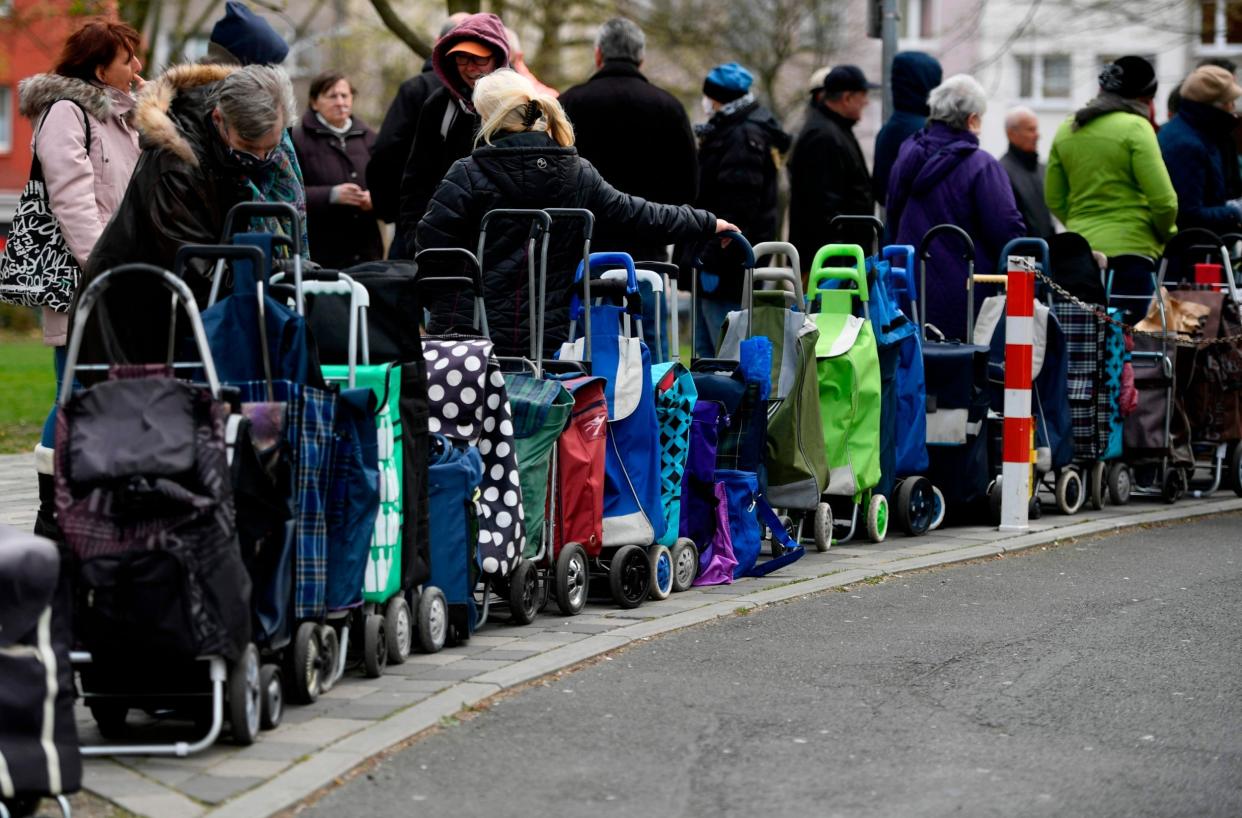Coronavirus has forced us to consider what’s truly ‘essential’ for a good life

One of the silver linings in this terrible crisis is that the word “essential” is now central to the national conversation. The government uses it constantly, along with the closely-related “necessary” and “key”.
We are told to avoid non-essential social contact and only to travel to work if that is absolutely necessary. And the the government has drawn up a list of key workers, starting with staff inside the NHS.
The nature of this crisis is also forcing each of us to consider in our own lives what is essential and what doesn’t matter so much. The government doesn’t have a monopoly on how these terms are defined.
This marks a welcome change from the materialism and hedonism that dominates our culture. In standard economic theory, after all, nothing is essential. There are just “wants”, some stronger than others, and the only thing that matters is whether people have enough money to satisfy them.
But the coronavirus crisis is ramming home how some things really are more important than others. For a start, there are things that are essential for life itself. Then there are those that we need for a good life.
This, of course, is not a new point. Abraham Maslow, the American psychologist, argued that humans have a “hierarchy of needs”, some more basic than others. And Amartya Sen, the Indian economist-philosopher, states that people need certain core “capabilities” in order to be free to lead a good life.
People will have different views about what is essential in life. But after my recent deliberations, here are my top 10:
Food
The poor always worry about food, and the current crisis is making us all realise that it cannot be taken for granted. Witness panic-buying in UK supermarkets and horrifying scenes in India as people scramble to leave large cities, fearing they may starve.
Physical health
Obviously, this is top of mind. People who catch the virus may die. But health is not just about survival. Many people are in pain, lack energy or are handicapped. Without health, we cannot make the most of life.
Mental health
Many people already suffer from depression, anxiety and trauma. Some may be able to get therapy online. But as we are cooped up in our homes, mental illness may go through the roof.
Decent, secure housing
Some of us can take refuge in comfortable homes during the crisis. But others don’t have anywhere to shelter – or their homes aren’t safe because they live with somebody violent.
Friendship
The crisis is bringing home how much we rely on friends and family for our sanity and meaning in life. We need to care for others – and to be cared for by them.
Sure, we can keep in touch electronically, and maybe even use the lockdown to deepen our relationships. But even the best video conference doesn’t let you hug somebody.
Our environment
Every animal has a habitat. We are now largely excluded from ours as we are only allowed out of the house once a day.
It’s great that the air is less polluted and carbon isn’t being spewed into the atmosphere at such a furious rate during lockdown. But we also can’t enjoy the sun, wind, rain and green spaces as much as we would like.
And remember: many people couldn’t enjoy a beautiful neighbourhood even before the coronavirus crisis.
Meaningful work
Some of us can work at home, perhaps finding that we do so even more effectively than we did at the office. But others cannot. Many now find themselves without any work at all. Given the centrality of work to people’s lives and identities, that leads to boredom and a sense of uselessness.
And let’s not kid ourselves. Quite a lot of people have never had jobs which allow them to use their talents for a good purpose, even at the best of times.
Time to reflect
One of the things that distinguishes humans from other animals is that we can think about what really matters. We have time to do that now that our lives are less frantic and we’re not rushing around. It will be great if we can continue to do so afterwards.
Joy
Food, shelter and health allow us to survive, but everybody needs some sparks of pleasure in life to thrive. We can dance, sing or do other things we enjoy on our own – or, right now, via videolink. But many will find the lockdown a joyless experience. The challenge is finding ways to overcome that.
Active citizenship
As well as reflecting on what a good life is, we can use the coming weeks to think about what makes a good society. For example, how much do we want to invest in physical and mental health – and in helping people get good homes and meaningful jobs? And what sacrifices are we prepared to make to save our planet?
Perhaps we will conclude that if we give up on some things that are not essential, we can keep those that are. But we will have to fight because big changes to society won’t happen on their own.
Read more
16 days and the government still can’t answer one coronavirus question

